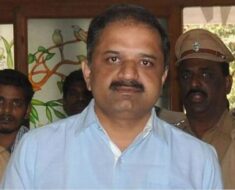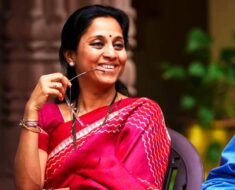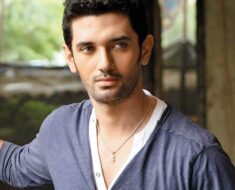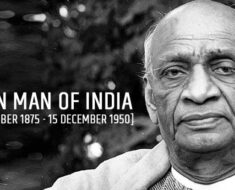Nathuram Vinayak Godse remains a controversial figure in Indian history, known primarily for his assassination of Mahatma Gandhi. This detailed biography explores his life, motivations, and the events surrounding the tragic event.
Wiki/Biography
Nathuram Godse, born on May 19, 1910, in Baramati, Pune district, was a Marathi Chitpawan Brahmin. His father, Vinayak Vamanrao Godse, worked at the Post Office. Initially named Ramachandra, he was renamed Nathuram due to a family belief in an unfavorable omen surrounding his birth. His early life saw the death of his three elder brothers in infancy, leading to his initial upbringing as a girl. He received his primary education locally before moving to Pune for English language instruction. While initially admiring Mahatma Gandhi, he later became disillusioned.
His matriculation failure prevented further formal education. This period coincided with his increasing involvement in Hindu nationalist movements.
Family
Nathuram Godse was born to Vinayak Vamanrao Godse and Lakshmi. He had one brother, Gopal Godse (who died in 2005), and a sister whose name is not publicly known. He remained unmarried throughout his life.
Life Story/Career
After abandoning his studies, Godse joined the Hindu Mahasabha, a Hindu nationalist organization. He started a Marathi-language newspaper, initially called “Agrani,” later renamed “Hindu Rashtra.” His growing disillusionment with Mahatma Gandhi’s policies, which he perceived as favoring Muslims, led him to reject Gandhian philosophy and view Gandhi as anti-national.
In 1932, he became a member of the Rashtriya Swayamsevak Sangh (RSS) but remained involved with the Hindu Mahasabha. He actively wrote articles expressing his views. He collaborated with M.S. Golwalkar (later the RSS chief) on translating Babarao Savarkar’s book “Rashtra Mimansa” into English. Reports suggest a falling out with Golwalkar over credit for this translation. He founded his own organization, “Hindu Rashtra Dal,” on Vijayadashmi in 1942, while retaining membership in the Hindu Mahasabha and RSS.
By 1946, his dissatisfaction with the perceived inaction of the RSS and Hindu Mahasabha regarding the partition of India prompted him to leave both organizations, straining his relationships with many fellow members.
Assassination Of Mahatma Gandhi
First Attempt
Godse, deeply affected by the partition of India, blamed Mahatma Gandhi for it. On January 20, 1948, he and his associates attempted to assassinate Gandhi at Birla House in New Delhi. Their plan involved using grenades to disperse the crowd before a second attempt on Gandhi’s life. However, the attempt failed due to a lack of courage from one of the conspirators.
Second Attempt
The successful assassination occurred on January 30, 1948. Godse, along with Narayan Apte and seven others, carried out the act. Apte was the mastermind. Godse, wearing a khaki uniform, approached Gandhi during his prayer meeting, shooting him three times in the chest. Gandhi’s last words were reportedly “Hey Ram.”
Arrest and Trial
Herbert Reiner Jr., an American diplomat, witnessed the assassination and apprehended Godse. The trial began on May 27, 1948. Nine individuals were charged with murder conspiracy. Vinayak Damodar Savarkar was acquitted due to insufficient evidence. On February 10, 1949, Godse and Apte received the death penalty, while six others received life sentences.
Despite appeals for clemency, Godse proudly accepted his death sentence. The appeals from Gandhi’s sons were also rejected. Godse and Apte were hanged on November 15, 1949, in Ambala Jail.
Facts
The murder weapon, a Beretta M1934 pistol, had a complex history, originating in Italy and possibly passing through British hands as a war trophy before ending up in India.
In his statement, “Why I Killed Gandhi?”, Godse detailed his beliefs that Gandhi’s appeasement policies towards Muslims were responsible for the partition and the subsequent violence. He felt Gandhi’s actions were detrimental to India.
| Aspect | Details |
|---|---|
| Birthdate | May 19, 1910 |
| Birthplace | Baramati, Pune district, British India |
| Occupation | Journalist, Hindu Nationalist Activist |
| Known for | Assassination of Mahatma Gandhi |
| Death Sentence | November 15, 1949 |
Judge G.D. Khosla’s account of Godse’s statement during the trial highlights the significant impact it had on the audience.
Gopal Godse’s memoir, “May I Please Your Honour,” initially banned, later shed further light on the family’s perspective.
Later attempts by groups like the Hindu Mahasabha to rehabilitate Godse’s image and portray him as a patriot remain controversial.
“`







